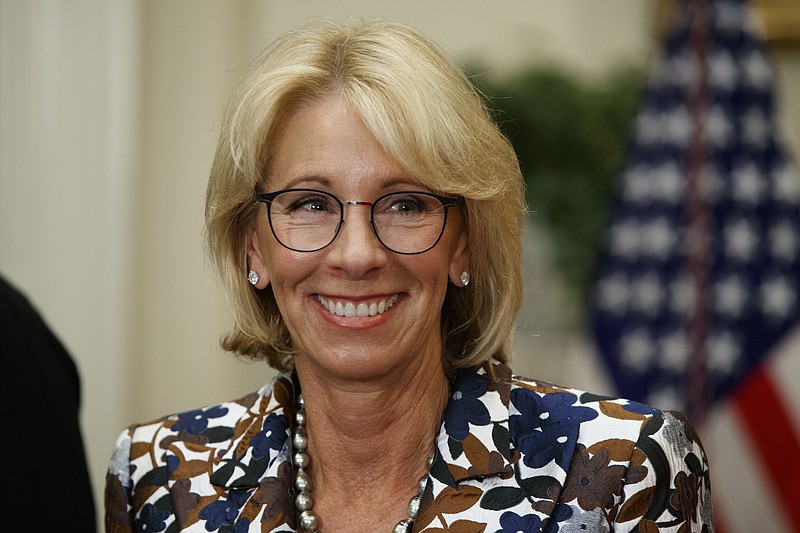Education advocates said a Trump administration plan to use federal Pell Grant money to fund space exploration would jeopardize aid for future college students and could trigger a budgeting crisis within just a few years.
The plan aims to redirect $1.9 billion from a Pell Grant surplus to jumpstart other projects, primarily a NASA initiative to put astronauts back on the moon. In announcing the plan Monday, administration officials said it would keep the Pell program, the largest source of federal aid for low-income students, on sound fiscal footing and would not harm students.
However, a chorus of education organizations pushed back Tuesday.
“Sure, there is no immediate impact, but what you have done is undercut the stability of a program that’s really critical for helping students afford college,” said Jon Fansmith, director of government relations for the American Council on Education, which represents more than 1,700 college presidents. “This really is an expression of priorities by the administration.”
All told, the White House wants to steer $3.9 billion away from the Pell program’s surplus, which is projected to reach almost $8 billion going into 2020. Along with the latest proposal, the administration’s initial budget plan sought to take $2 billion from the windfall to support other programs.
An Education Department staff member familiar with the budget process said the department was not consulted on the proposal, which came from the Office of Management and Budget. The person was not authorized to speak publicly about the decision making and requested anonymity.
The proposal comes as the Education Department looks to expand the program. Secretary Betsy DeVos has said Pell Grants should cover short-term certificate programs, and her office is exploring whether it should be opened to incarcerated college students.
In a similar episode this year, the Trump administration proposed to eliminate federal funding for the Special Olympics, despite objections from DeVos. After facing public outcry, Trump said he would leave the money untouched. On Monday, he said the $18 million had officially been added to his budget proposal.
Pell Grants have been offered for nearly 50 years and help low-income students cover college tuition and living costs. This year, more than 7 million students received the awards, which vary by income but can reach as high as $6,095 per student.
Congress has been building a surplus for the program to guard against a sudden surge in demand for the grants, which often happens during economic downturn. It’s meant to avoid another crisis like one during the Great Recession, when the number of Pell recipients jumped by 1.2 million and left a $10 billion budget hole.
In that case, lawmakers saved the program by infusing it with other federal funding and by raising eligibility requirements, cutting access for tens of thousands of students.
Some of those rules have since been relaxed, but if another recession hits and the program doesn’t have a buffer, experts said, lawmakers could again be forced to tighten eligibility rules.
Trump’s previous budget proposals similarly asked to dip into Pell reserves, but Congress has left the surplus untouched. Some lawmakers said this time would be no different.

